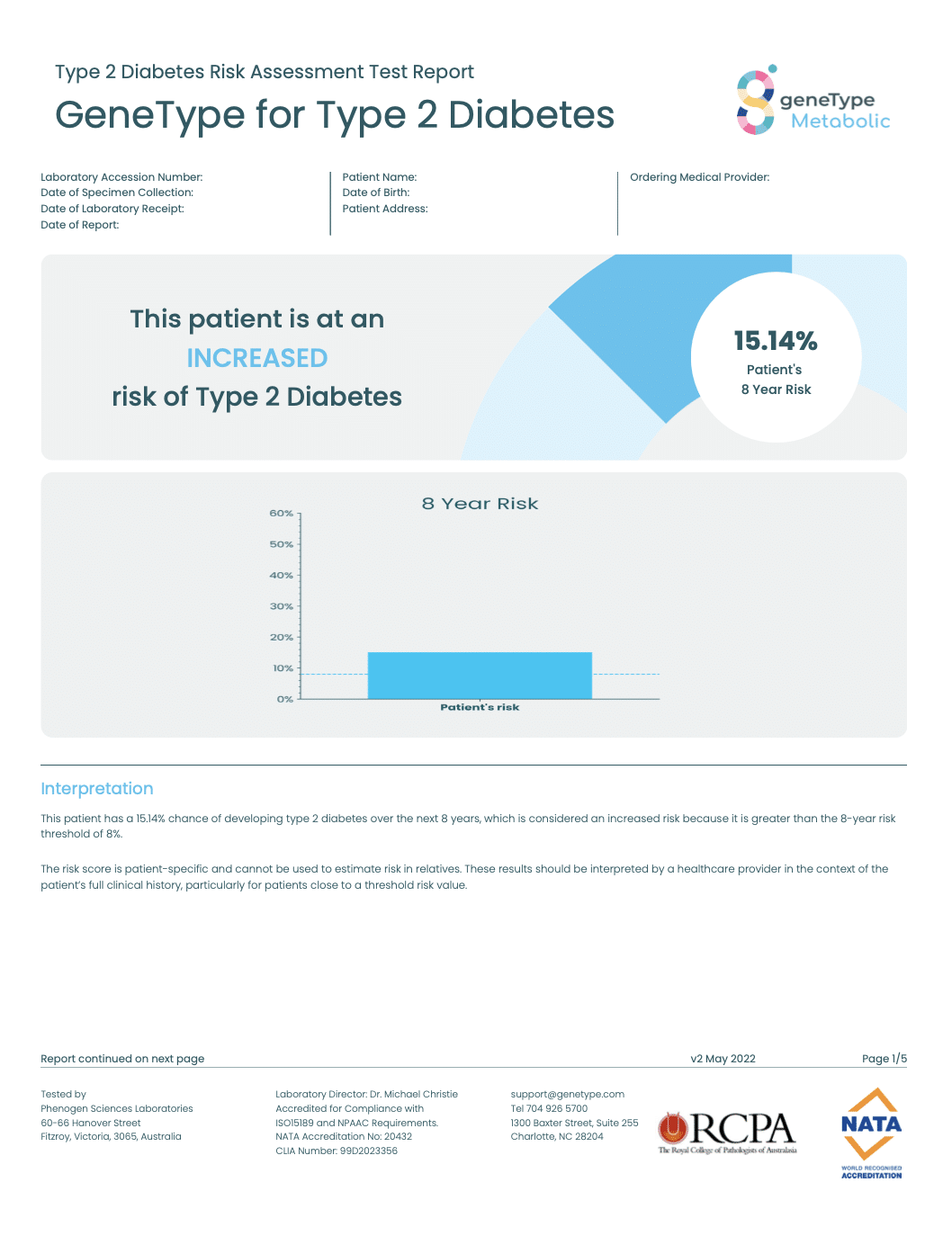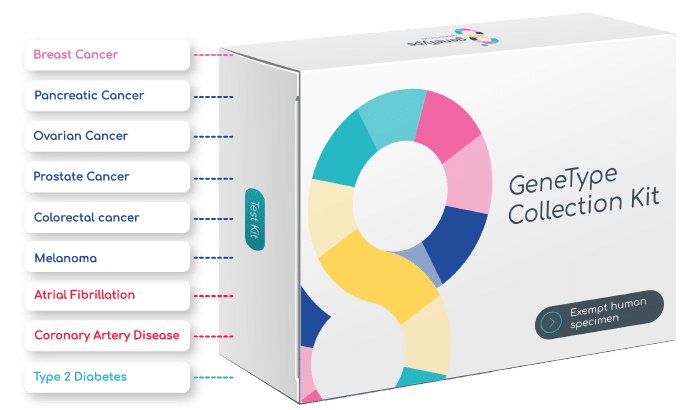Know your patient’s risk of type 2 diabetes
T2D screening is recommended for adults over 35 years based on BMI.¹ But participation in and success of risk reduction programs is often limited.²


Personalised risk assessment
geneType™ for Type 2 Diabetes provides personalised risk assessment integrating clinical, familial and genetic risk factors.
geneType™ for Type 2 Diabetes is appropriate for:
- Men and women
- Ages 40 – 85 years
- Fasting blood glucose < 126mg/dL
Type 2 diabetes can be prevented in up to 58% of cases in the high risk (pre-diabetes) population3
By being informed about their personal risk of type 2 diabetes, patients can be motivated to make informed, proactive health decisions and seek support when they need it.

Testing is simple

Step 1
Register as a provider; our team will provide clinical education and other resources as needed.
We will send kits to your clinic to have on hand.

Step 2
Discuss geneType™ with your patient.
Would geneType™ help them qualify for additional risk reduction strategies?

Step 3
Complete the Test Requisition form, collect a saliva sample from the patient with the collection kit provided and return both to Rhythm.
You will have the option to use a paper requisition, or a secure, compliant portal to complete the ordering process.

Step 4
Leave the rest to us.
We will notify you when your patient’s results are ready.
You will have the option to request a consult with a genetic counsellor, whether to review your patient’s results and/or to follow-up with your patient, as needed.
One report with clinically actionable insights
geneType™ reports are structured to make the results easy to interpret and communicate to a patient.
The geneType™ for Type 2 Diabetes report includes:
- A snapshot of your patient’s eight-year risk score
- Interpretation of what their risk score means in the context of your local guidelines
- Polygenic risk score accounting for additional single nucleotide polymorphisms that may influence their type 2 diabetes risk
- Information about modifying type 2 diabetes risk factors and the types of screening and interventions that may be relevant to their risk category.
Sample patient report

Do you have questions?
We have answers.
If we haven’t answered your question, contact us directly.
I use a traditional type 2 diabetes risk assessment model, why should I choose geneType?
The benefit of geneType is in the common genetic markers that we examine and incorporate with other standard markers of risk, like cholesterol or fasting glucose levels. This give you an advantage to visualize a component of your patient’s risk that you can’t see in traditional risk models. This leads to improved stratification, particularly in adults that may present with minimal clinical risk factors, but may have a high “baseline” risk based on these common genetic markers. Importantly, lifestyle modifications are effective in reducing type 2 diabetes risk across all genetic risk categories.
Is this test reimbursed by insurance?
No. At this time geneType™ is a self-pay test. However, your patient may use FSA/HSA to pay for the test.

*Patient eligibility dependent on personal medical history, age and sex
Interested in ordering more than one disease? Order geneType™ Multi-Test.
The Multi-Risk suite of tests is for adults 40-85 years of age. At maximum, a woman would be eligible for eight diseases in the panel; a man would be eligible for seven. Starting at age 30, a patient may qualify for geneType's™ cancer risk assessments only.
References
- Jonas DE et al. JAMA 2021;326(8):744-760.
- Ali MK et al. JAMA Network Open 2019;2(5):e193160.
- Diabetes Australia (2021) Pre-Diabetes. Accessed February 2022.


